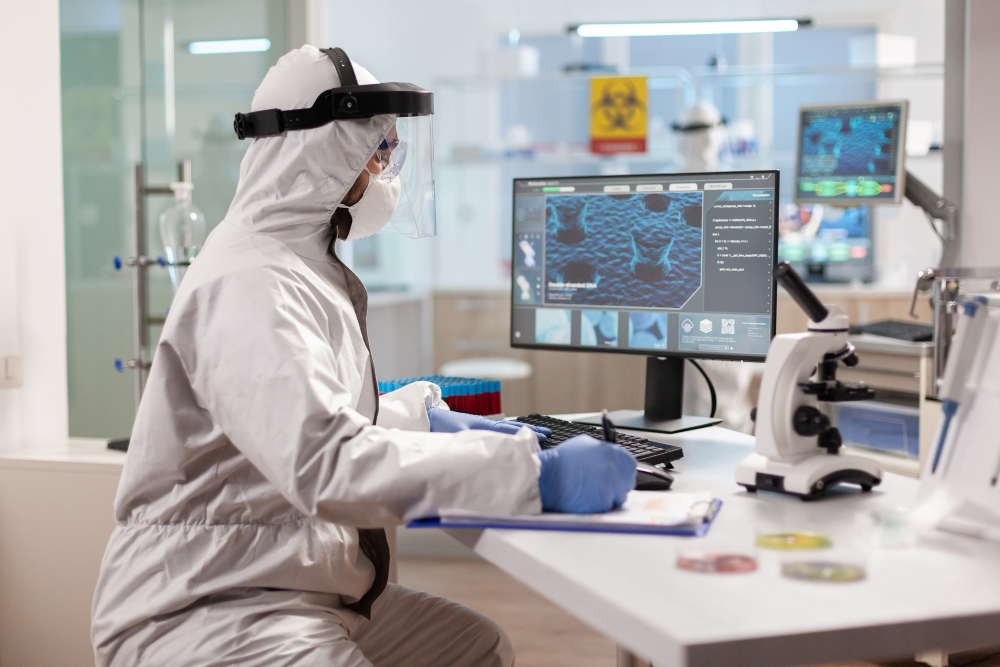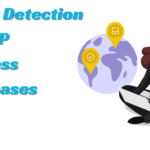Emerging Applications of Nanotechnology in Healthcare Industry
- 1 What is Nanotechnology in Healthcare?
- 2 Top 8 Healthcare Nanotechnology Applications
- 2.1 Drug Delivery Systems
- 2.2 Diagnostics and Imaging
- 2.3 Tissue Engineering and Regenerative Medicine
- 2.4 Nano-Enabled Medical Devices
- 2.5 Personalized Medicine
- 2.6 Targeted Cancer Therapy
- 2.7 Theranostics
- 2.8 Microfluidics and Lab-on-a-Chip Devices
- 3 Conclusion
In the rapidly evolving healthcare landscape, integrating cutting-edge technologies has become pivotal in enhancing diagnostic accuracy, treatment efficacy, and overall patient outcomes. One such transformative field that has garnered significant attention is nanotechnology. At the intersection of physics, chemistry, biology, and engineering, nanotechnology manipulates materials at the nanoscale, opening up unprecedented possibilities for innovation. Within the healthcare industry, nanotechnology applications are poised to revolutionize diagnostics, drug delivery, imaging, and personalized medicine. Managed IT Services Charlotte experts help leverage nanotechnology’s power in your healthcare sector.
In this article, we will explore nanotechnology and its application in healthcare.
What is Nanotechnology in Healthcare?
Nanotechnology in healthcare refers to using tiny particles, known as nanoparticles, in medical applications. These nanoparticles can be engineered to have specific properties and functions, making them valuable tools in diagnostics, drug delivery, and imaging.
In diagnostics, nanotechnology allows for detecting diseases at an early stage by targeting specific biomarkers. In drug delivery, nanoparticles can encapsulate medications and deliver them directly to the target site, improving efficacy and minimizing side effects. Nanoparticles also play a crucial role in medical imaging, enhancing the resolution and sensitivity of imaging techniques. Contact the IT Support Salisbury team if you want to consider nanotechnology in the healthcare industry.
Top 8 Healthcare Nanotechnology Applications
Drug Delivery Systems
One of the emerging applications of nanotechnology in the healthcare industry is the development of drug delivery systems. Nanotechnology offers a promising solution to improve the efficiency and efficacy of drug delivery, as it allows for targeted delivery of medications directly to specific cells or tissues in the body.
By encapsulating drugs within nanoparticles, scientists can enhance their stability and control their release, ensuring they reach their target and minimize side effects. This technology can potentially revolutionize the treatment of various diseases, including cancer, by delivering therapeutics directly to tumor cells while sparing healthy tissue. As research in this field advances, we can expect to see more innovative drug delivery systems that harness the power of nanotechnology for improved patient outcomes.
Diagnostics and Imaging
Nanotechnology is revolutionizing the healthcare industry, and one of its emerging applications is diagnostics and imaging. Nanoparticles can be engineered to target specific cells or molecules, allowing for more accurate and efficient diagnostic tests. These nanoparticles can also be used as contrast agents in imaging techniques such as MRI or CT scans, providing more precise and detailed images of tissues and organs.
Using nanotechnology in diagnostics and imaging can improve early detection of diseases, enhance treatment monitoring, and ultimately improve patient outcomes. However, further research and development are still needed to fully exploit nanotechnology’s capabilities in this field.
Tissue Engineering and Regenerative Medicine
Tissue engineering and regenerative medicine are emerging applications of nanotechnology that hold great promise for the healthcare industry. By utilizing nanomaterials and techniques, scientists and researchers can create artificial tissues and organs that can be used to replace damaged or diseased ones.
Advancements can potentially revolutionize the field of transplantation, providing a limitless supply of organs and tissues for those in need. Additionally, nanotechnology is also being used to develop targeted drug delivery systems, which can enhance the effectiveness of treatments while minimizing side effects. The combination of nanotechnology with tissue engineering and regenerative medicine is paving the way for new possibilities in healthcare and offering hope for patients with previously untreatable conditions.
Nano-Enabled Medical Devices
Nano-enabled medical devices are one of the emerging nanotechnology applications in the healthcare industry. These devices utilize nanoscale materials and structures to enhance their performance and capabilities. For example, nanosensors can be integrated into medical devices to detect and monitor various health parameters, such as glucose levels or drug concentrations, with high sensitivity and accuracy.
Nanocoatings can also be applied to medical implants to improve their biocompatibility and reduce the risk of infections. Additionally, nanomaterials can be used to develop targeted drug delivery systems that deliver medications directly to specific cells or tissues, minimizing side effects and improving therapeutic outcomes.
Personalized Medicine
Personalized medicine is one of the emerging applications of nanotechnology in the healthcare industry. With advancements in nanotechnology, it is now possible to develop targeted therapies tailored to an individual’s specific genetic makeup and medical history.
This approach allows for more precise and effective treatment outcomes, as medications can be designed to target specific cells or molecules involved in a disease process. Nanotechnology also enables the delivery of drugs directly to the site of action, reducing side effects and improving overall patient outcomes. With further research and development, personalized medicine has the potential to revolutionize healthcare by providing patients with more effective and individualized treatment options.
Targeted Cancer Therapy
Targeted cancer therapy is one of the most promising and revolutionary nanotechnology applications in the healthcare industry. Nanoparticles can be precisely engineered to target cancer cells, effectively delivering drugs directly to the tumor site while causing minimal harm to healthy cells.
These nanoparticles can be customized to release drugs in a highly controlled and effective manner, significantly enhancing their potency and minimizing any side effects. Nanotechnology can also be used for imaging, allowing for early detection and precise monitoring of tumors. Nanotechnology in targeted cancer therapy holds great promise for improving patient outcomes and revolutionizing cancer treatment.
Theranostics
Theranostics is an emerging application of nanotechnology in the healthcare industry that combines therapeutic and diagnostic capabilities into a single system. This innovative approach allows for targeted drug delivery and real-time monitoring of treatment effectiveness, leading to improved patient outcomes.
Nanoparticles can be engineered to carry therapeutic agents directly to diseased cells, minimizing side effects and maximizing treatment efficacy. These nanoparticles can also be equipped with imaging agents that enable non-invasive monitoring of the therapeutic response.
Microfluidics and Lab-on-a-Chip Devices
Microfluidics and lab-on-a-chip devices are emerging applications of nanotechnology in the healthcare industry. These technologies have the potential to revolutionize medical diagnostics and treatment by enabling miniaturized, portable, and susceptible devices for various healthcare applications. Microfluidics involves manipulating tiny amounts of fluid within microchannels, allowing for precise control of fluids and particles at the nanoscale.
Lab-on-a-chip devices integrate multiple functions onto a single chip, enabling rapid analysis of biological samples with minimal sample volume and processing time. These technologies can improve patient care by providing faster and more accurate diagnoses, monitoring disease progression, and delivering targeted therapies.
Conclusion
The field of nanotechnology is rapidly growing and transforming the healthcare industry by providing unprecedented opportunities for innovative solutions. Nanotechnology has diverse medical applications, such as drug delivery systems, diagnostics, and tissue engineering. These applications promise to improve treatment efficacy, enhance patient outcomes, and reduce healthcare costs. Ongoing research and development are paving the way for the integration of nanotechnology into healthcare, which has the potential to address existing challenges and open new frontiers. This advancement heralds a future where precise and minimally invasive personalized interventions become the foundation of medical care.



















